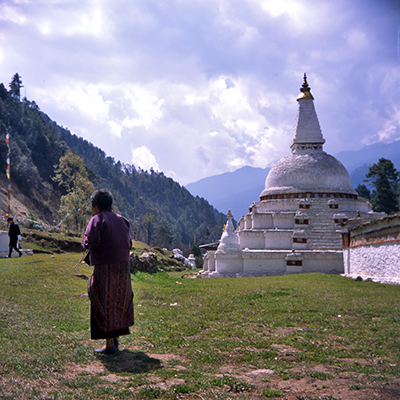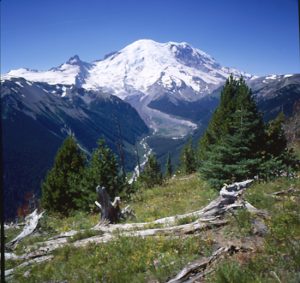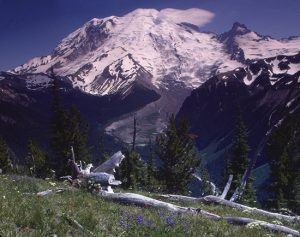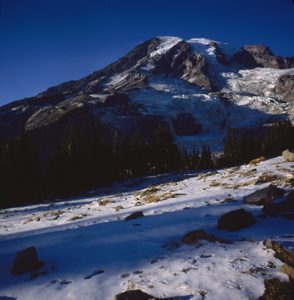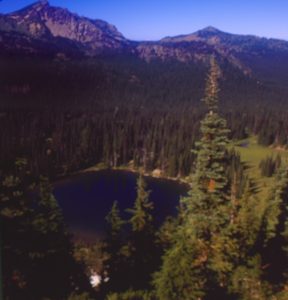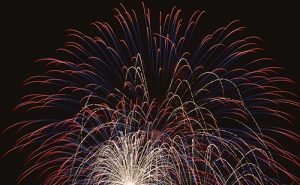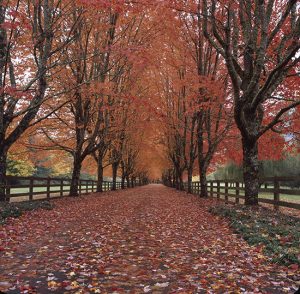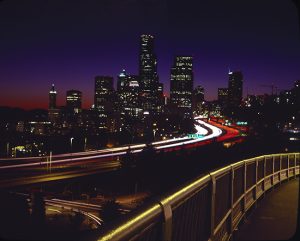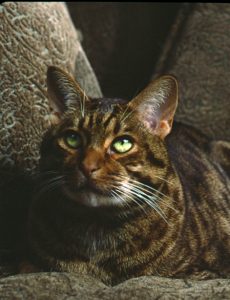
Our cat Edison abiding on a comfy chair.
There have been numerous entries playing with camera distance from subject, and with varying results. I love the idea of getting in close, but I would want to limit the depth of the scene so my background wouldn’t be difficult to fuse. Some years back I purchased a macro box from master 3D photographer John Hart of Colorado. At the time I was using it with my digital cameras, but it’s mostly sat around unused. Last year I decided to have a go with the Hasselblads. I was happy enough with the results, but the whole setup was a total PITA to use. Trying to get both cameras to the same settings, focus them both, capture an image, and then wind them for the next image (without knocking them out of focus or position in a cramped macro box) was an exercise in frustration. Plus there was a lot of experimentation with flash sync. Anyway, I do have an example of using the setup to capture a portrait of our cat Edison.
I do plan to continue this pursuit, but it will involve rebuilding the macro box to accommodate two motorized Hasselblads that can be triggered wirelessly
This was shot with flashes. I’ve mentioned before that I’m a fan of the strobist blog. If you are interested in learning about using portable flash units, go there and start with Lighting 101. I can’t recommend it enough.
I like the eyes and whiskers of course but I especially love the hairs in Eddie’s ears. They remind me of fireworks trails.
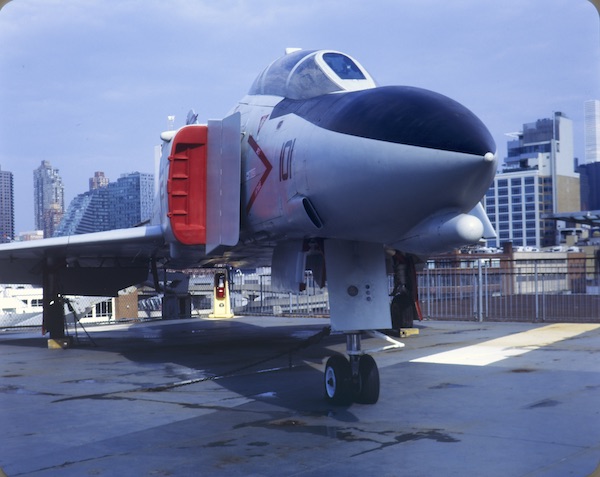
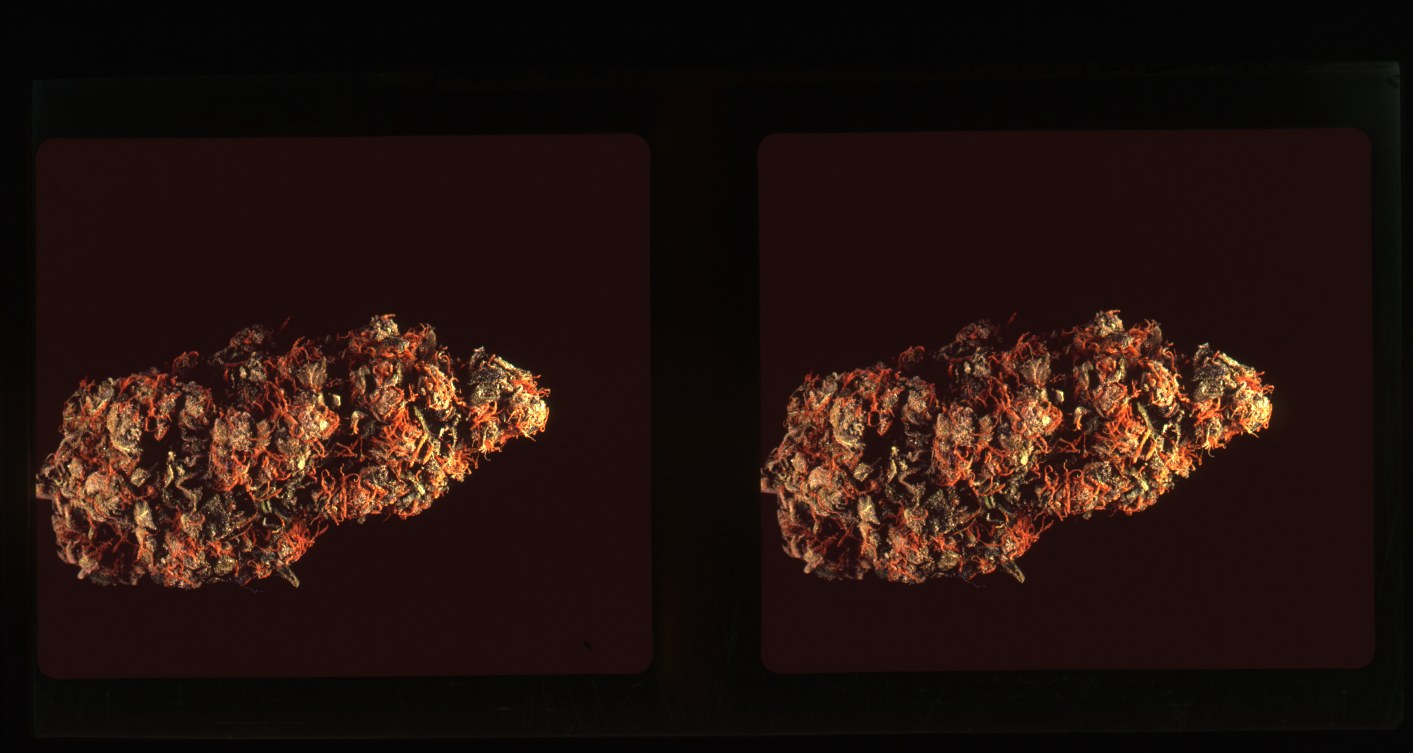
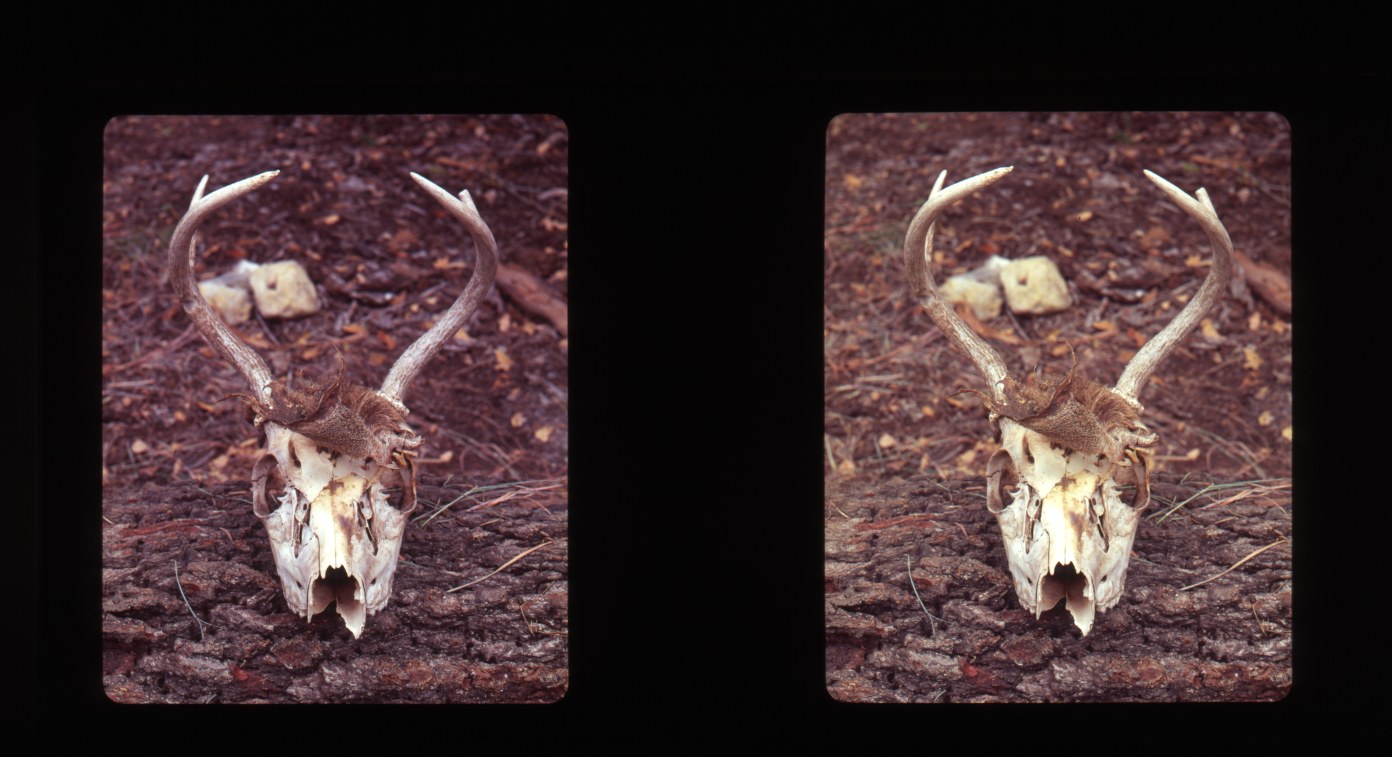
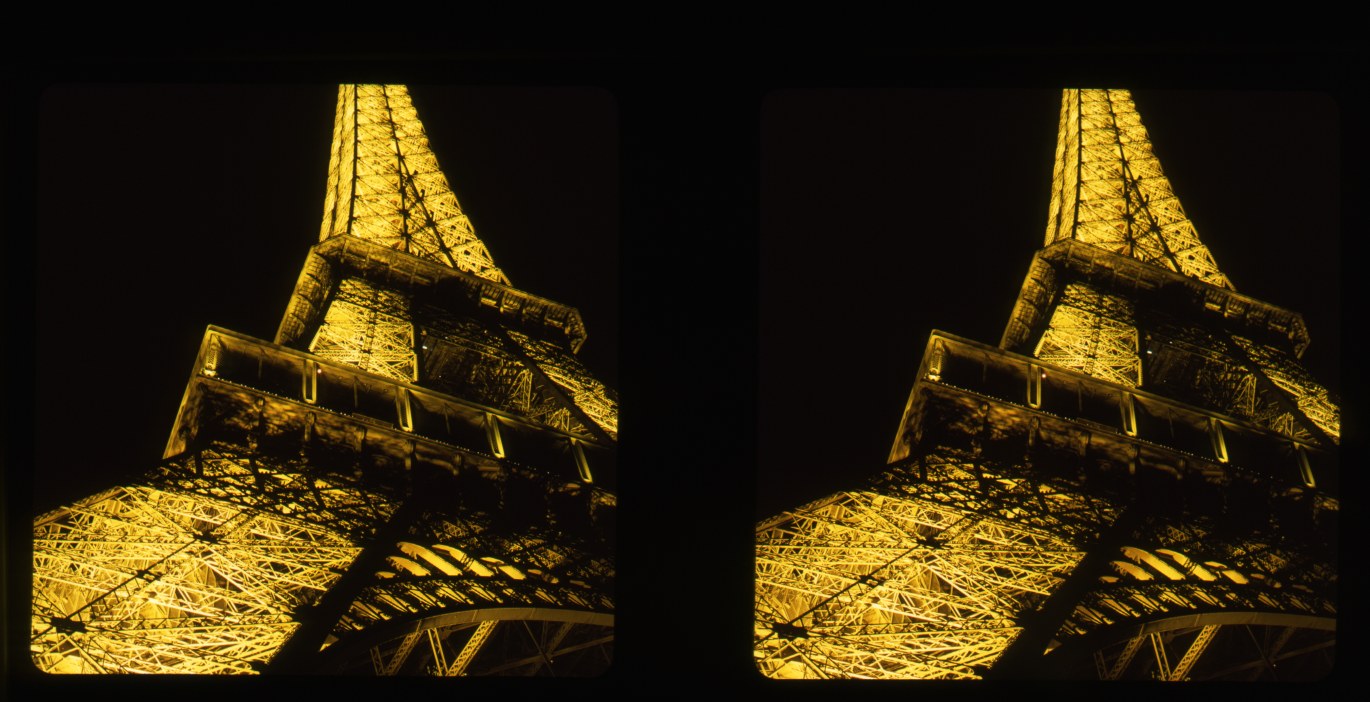
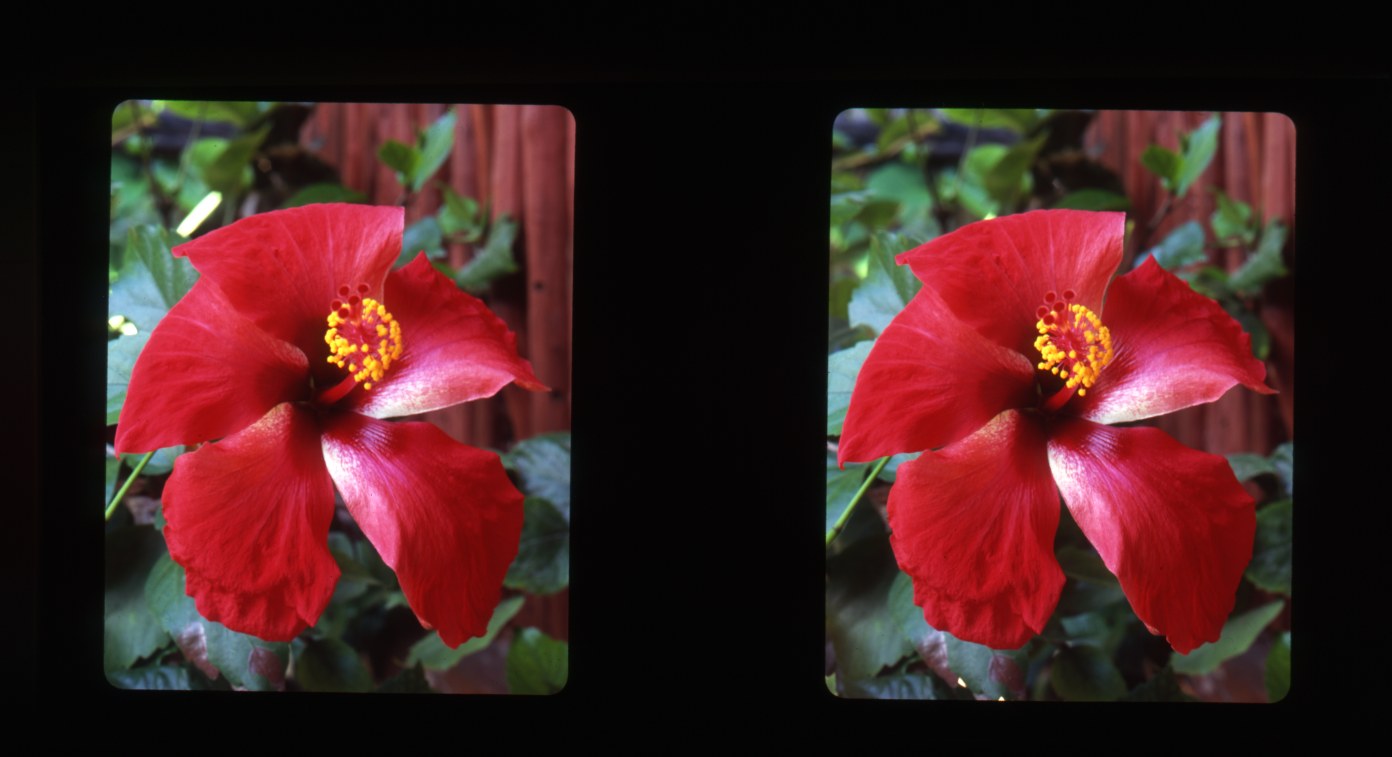
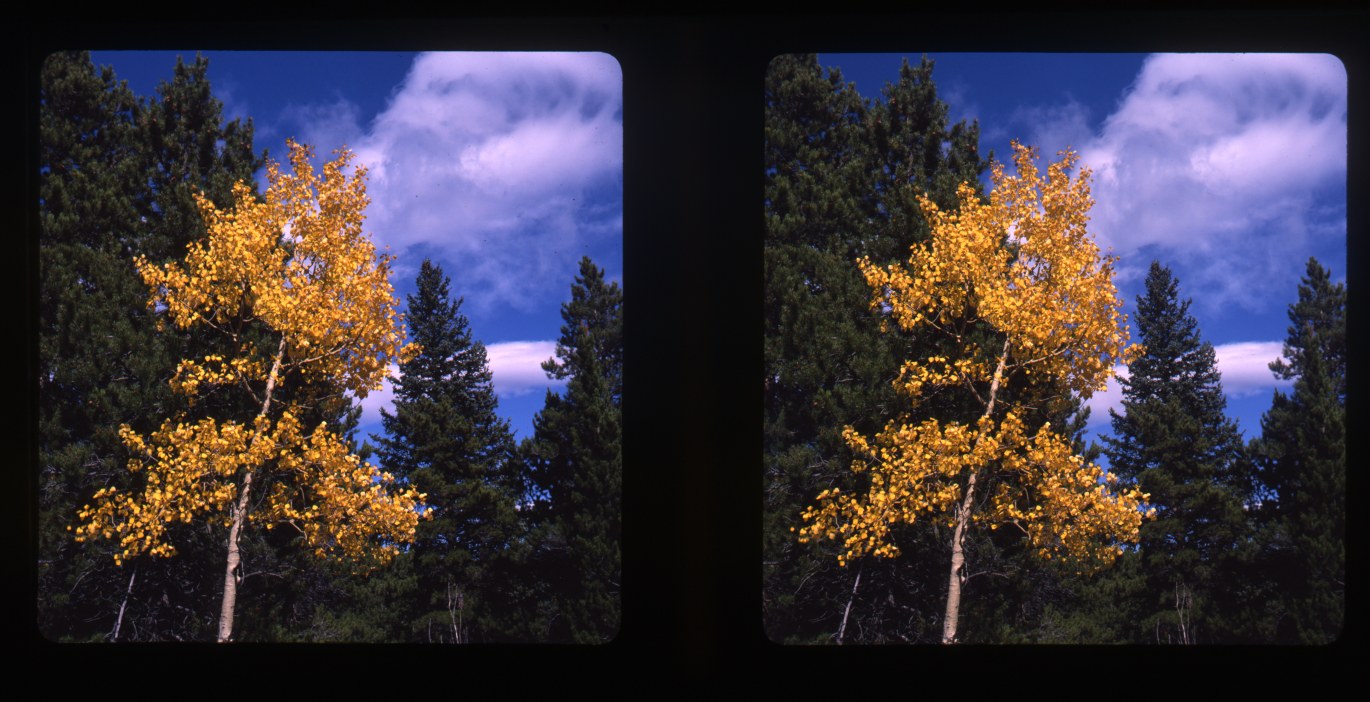
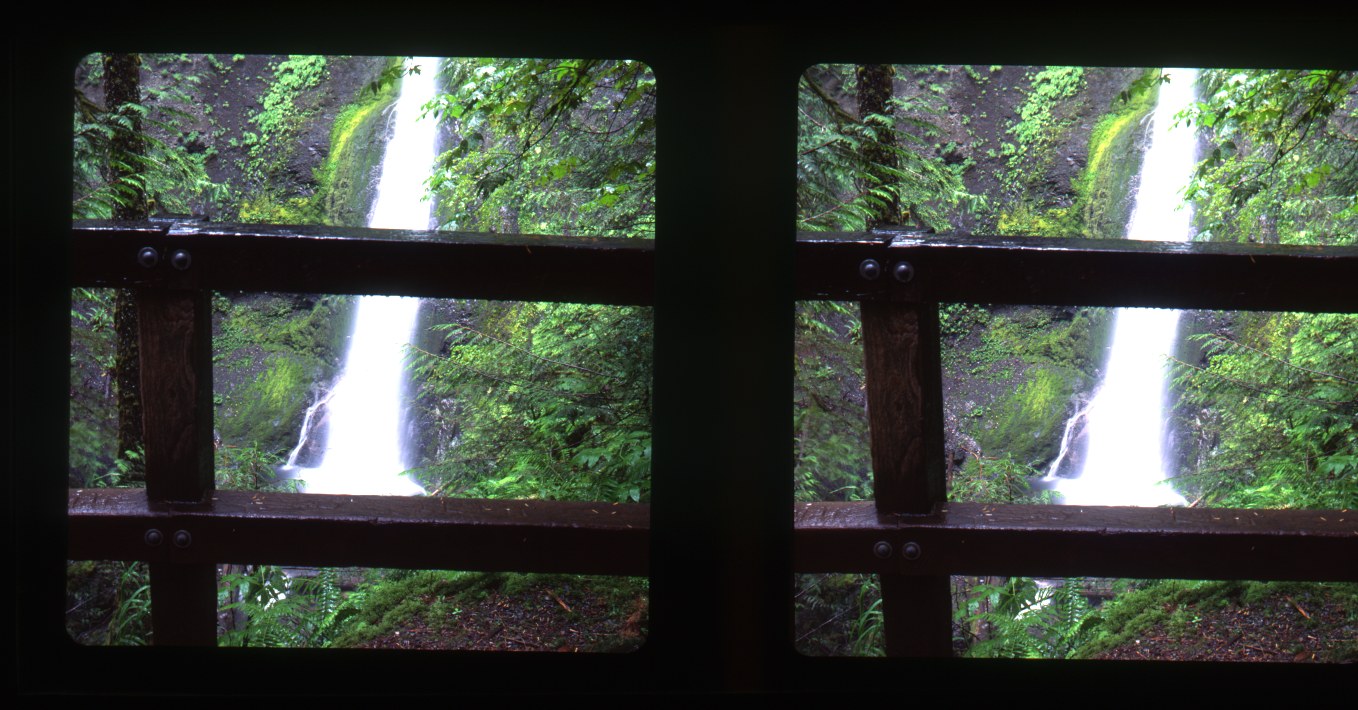
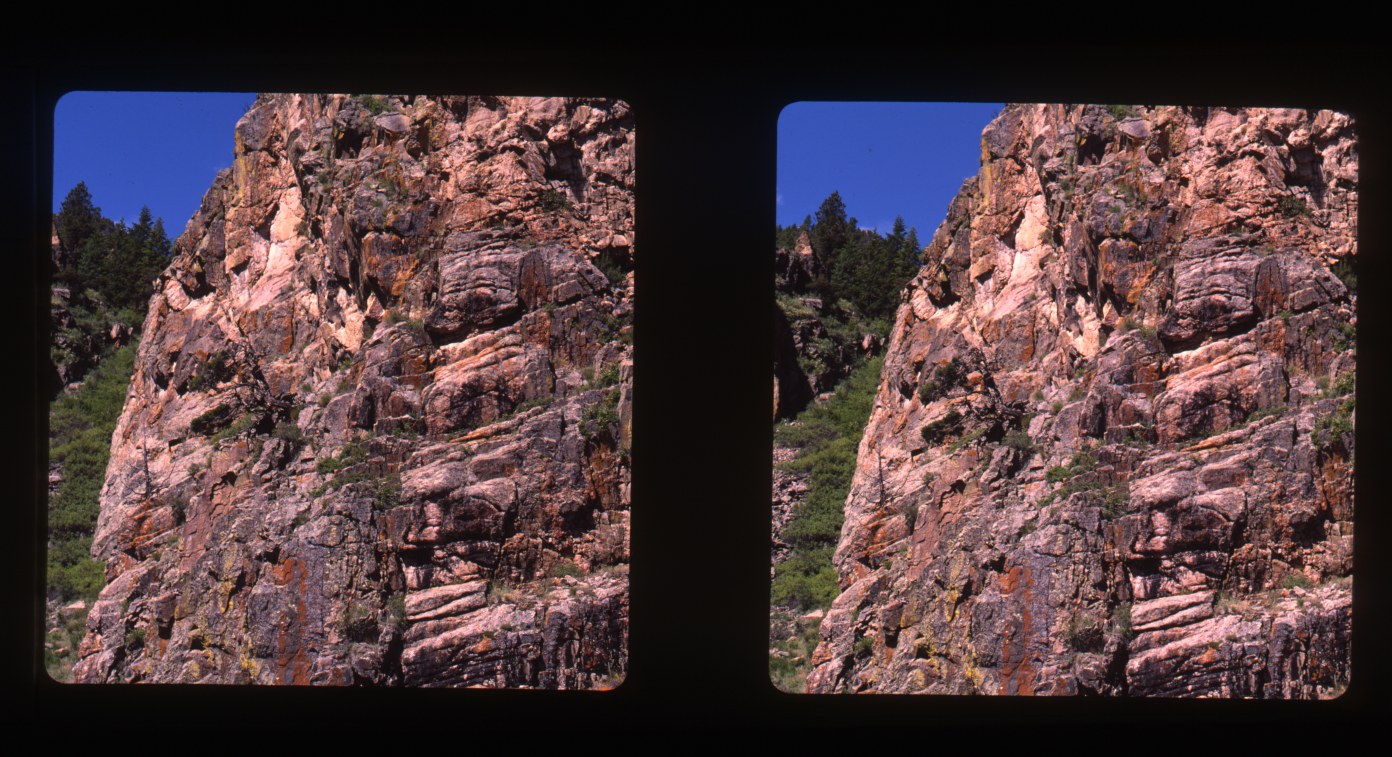

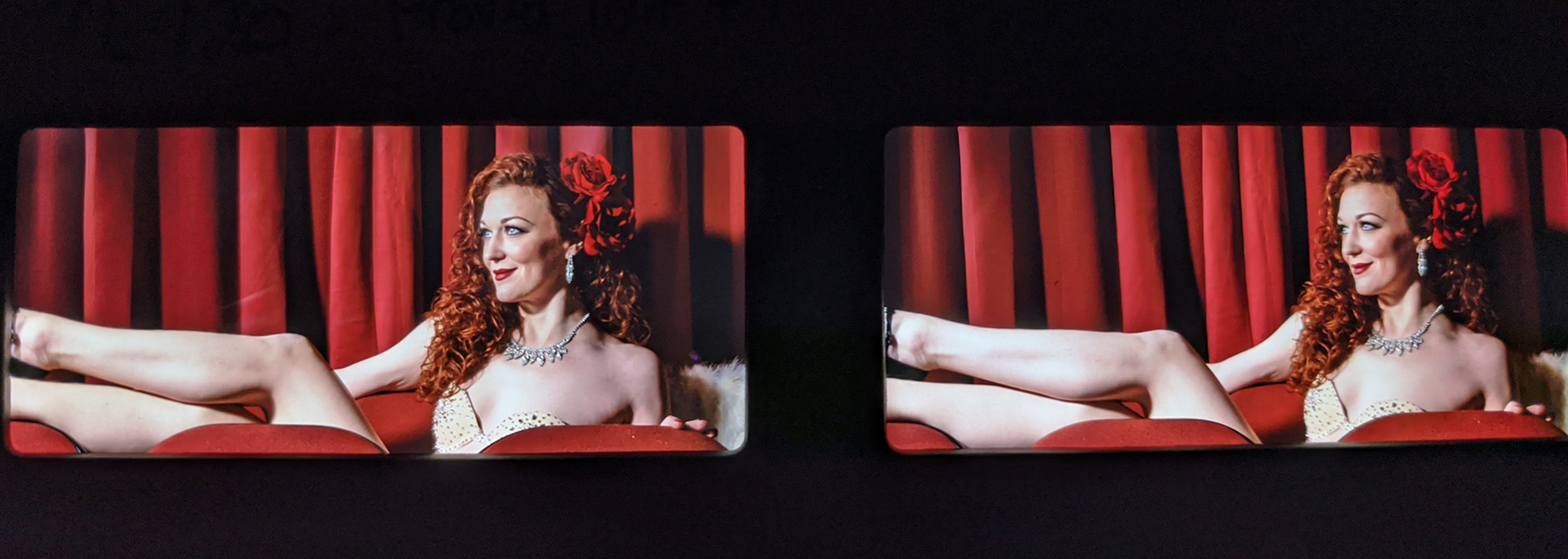
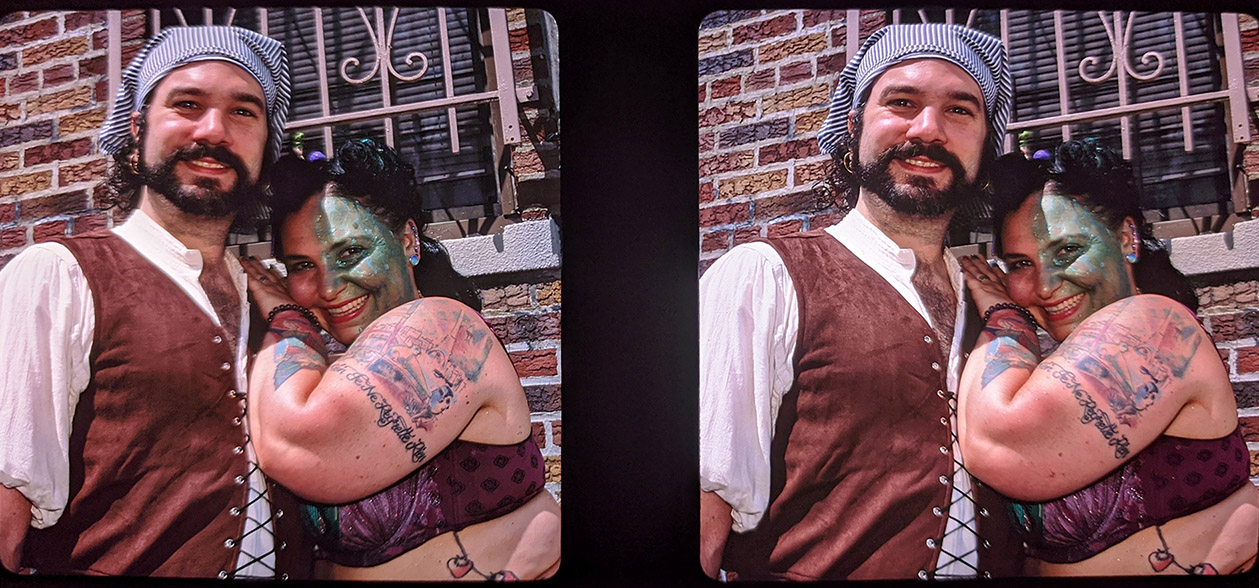
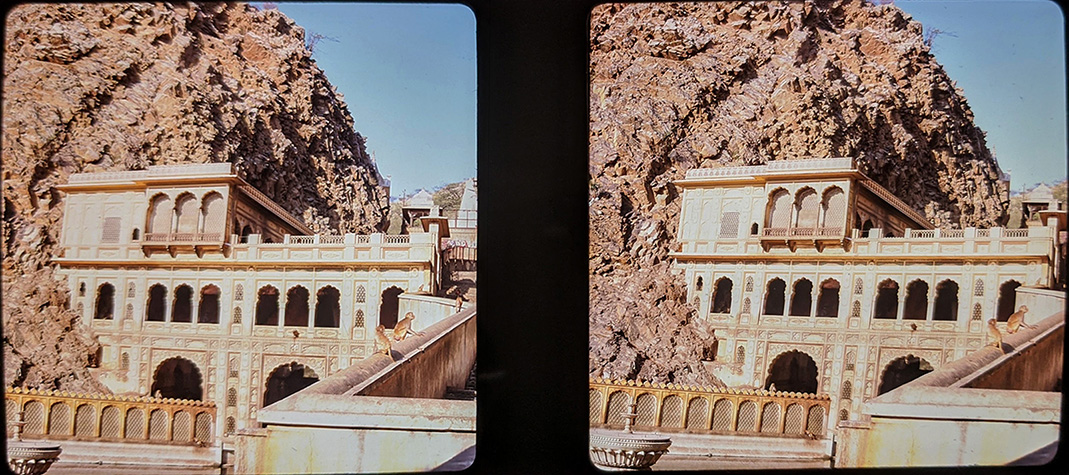
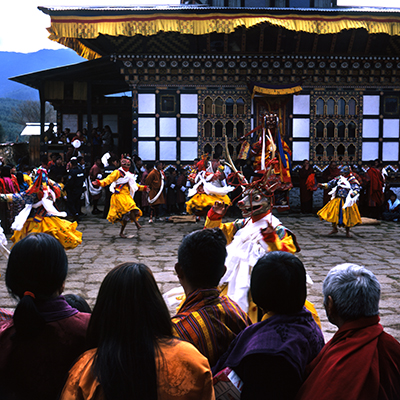 The Domkhar festival is a wonderful experience. Before we left on our trip, we planned our trip around two festivals. Typically most occur in the Spring and Fall in Bhutan, this was in the Springtime. If you do plan on going to Bhutan during those times of year, your travel agent and/or guide will almost certainly schedule in a festival or two for you to see. The area of Bumthang was the furthest east that we travelled in Bhutan, and it’s an area that I would highly recommend. The festival lasts for about 3 days, and we visited on it’s first day. The festival is dedicated to the birth anniversary of Guru Rinpoche, the second Buddha, or more importantly the father of Buddhism in Bhutan. Monks dress as animals and other characters, and display themselves in lavish costumes. They dance in a mesmerizing choreography. We did manage to get a chance to explore the village of Domkhar as well, which felt like you were entering into a time warp going back about 2 centuries. All in all, it was an awesome experience and not your everyday trip to the beach! Shot this with my Sputnik on Fuji Provia 100f film.
The Domkhar festival is a wonderful experience. Before we left on our trip, we planned our trip around two festivals. Typically most occur in the Spring and Fall in Bhutan, this was in the Springtime. If you do plan on going to Bhutan during those times of year, your travel agent and/or guide will almost certainly schedule in a festival or two for you to see. The area of Bumthang was the furthest east that we travelled in Bhutan, and it’s an area that I would highly recommend. The festival lasts for about 3 days, and we visited on it’s first day. The festival is dedicated to the birth anniversary of Guru Rinpoche, the second Buddha, or more importantly the father of Buddhism in Bhutan. Monks dress as animals and other characters, and display themselves in lavish costumes. They dance in a mesmerizing choreography. We did manage to get a chance to explore the village of Domkhar as well, which felt like you were entering into a time warp going back about 2 centuries. All in all, it was an awesome experience and not your everyday trip to the beach! Shot this with my Sputnik on Fuji Provia 100f film.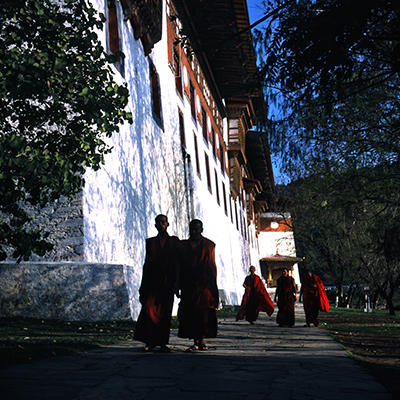 As we walked over the main bridge to the Dzong, a small crowd of monks were walking up a path towards us. Knowing full well that this was a good opportunity to capture them, I ran ahead of my group, as the lighting was nice and dramatic. Happily, I managed to snap a couple shots off before they walked past. What’s great about Bhutan is the sheer beauty and photo-ops at every corner. Unfortunately, you must be accompanied during your entire stay in Bhutan, government rules. Luckily however, it’s a great way to see the country since your guide and driver are always at your beck and call, are extremely knowledgable, and are always striving for you to have a great experience no matter what. If you see a photo op on the side of the road, they will gladly stop! We had them stop actually quite often. We are not used to being ‘pampered’ on our trips, and in fact we are usually quite uncomfortable and ‘unguided’ most of the time, since we tend to travel on a budget. However, Bhutan was an exception for us and since we had no choice but to have a guide, we embraced it with loving arms! If you’re even remotely interested in visiting Bhutan, please message me and I will gladly give you all the details. Shot on my Sputnik, with Fuji Provia 100F film.
As we walked over the main bridge to the Dzong, a small crowd of monks were walking up a path towards us. Knowing full well that this was a good opportunity to capture them, I ran ahead of my group, as the lighting was nice and dramatic. Happily, I managed to snap a couple shots off before they walked past. What’s great about Bhutan is the sheer beauty and photo-ops at every corner. Unfortunately, you must be accompanied during your entire stay in Bhutan, government rules. Luckily however, it’s a great way to see the country since your guide and driver are always at your beck and call, are extremely knowledgable, and are always striving for you to have a great experience no matter what. If you see a photo op on the side of the road, they will gladly stop! We had them stop actually quite often. We are not used to being ‘pampered’ on our trips, and in fact we are usually quite uncomfortable and ‘unguided’ most of the time, since we tend to travel on a budget. However, Bhutan was an exception for us and since we had no choice but to have a guide, we embraced it with loving arms! If you’re even remotely interested in visiting Bhutan, please message me and I will gladly give you all the details. Shot on my Sputnik, with Fuji Provia 100F film.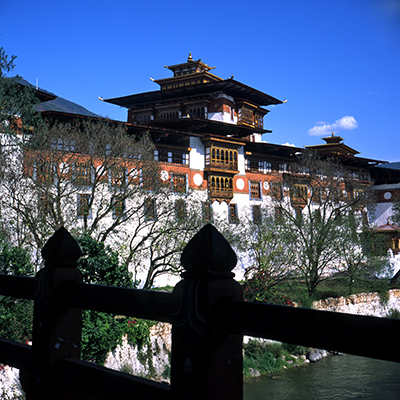 The Punhaka Dzong is the second oldest and the second largest Dzong in Bhutan, and arguably the most impressive. It’s surrounded by a converging river, which adds to it’s splendor. Dzongs used to be fortresses during wartime, but now are used for government offices and a religious monastery. My favorite view of the Dzong is from the bridge leading over the river to the main entrance. This was a more crowded part of Bhutan, mainly because it was closer to the west side of the country, where most tourists tend to gravitate to. This Dzong was by no means, an exception. Due to this, I had to ‘nudge and dodge’ my way over to the railing to get the shot. This was taken with my Sputnik, on Provia 100F film.
The Punhaka Dzong is the second oldest and the second largest Dzong in Bhutan, and arguably the most impressive. It’s surrounded by a converging river, which adds to it’s splendor. Dzongs used to be fortresses during wartime, but now are used for government offices and a religious monastery. My favorite view of the Dzong is from the bridge leading over the river to the main entrance. This was a more crowded part of Bhutan, mainly because it was closer to the west side of the country, where most tourists tend to gravitate to. This Dzong was by no means, an exception. Due to this, I had to ‘nudge and dodge’ my way over to the railing to get the shot. This was taken with my Sputnik, on Provia 100F film.